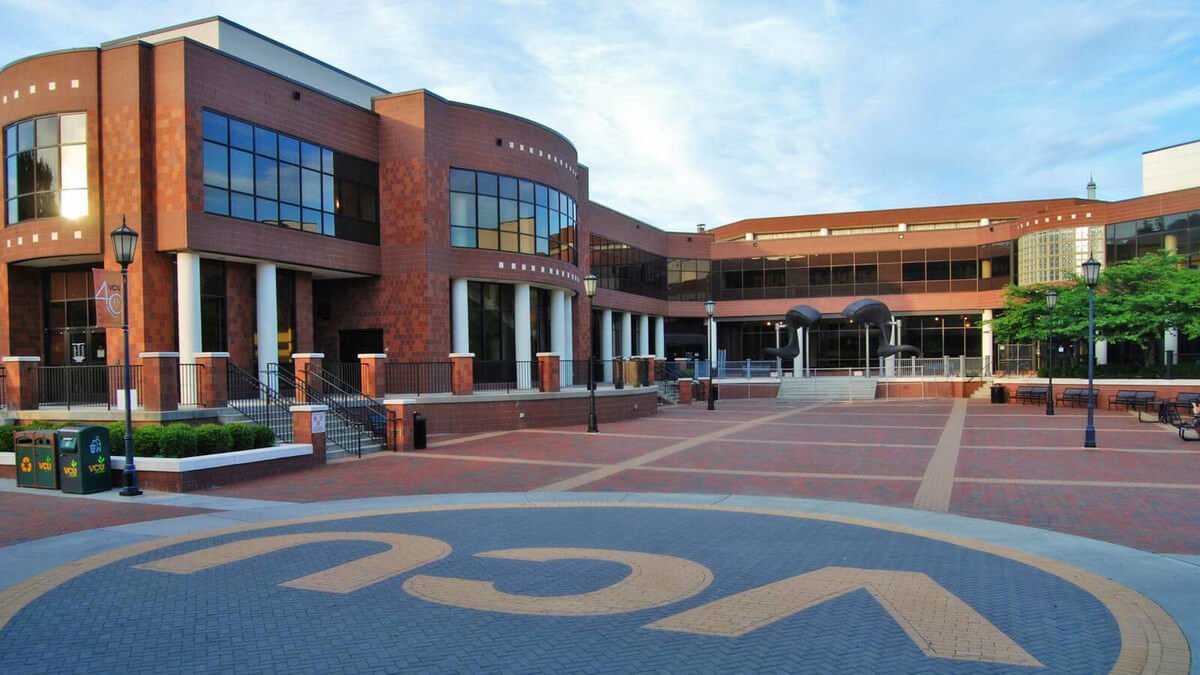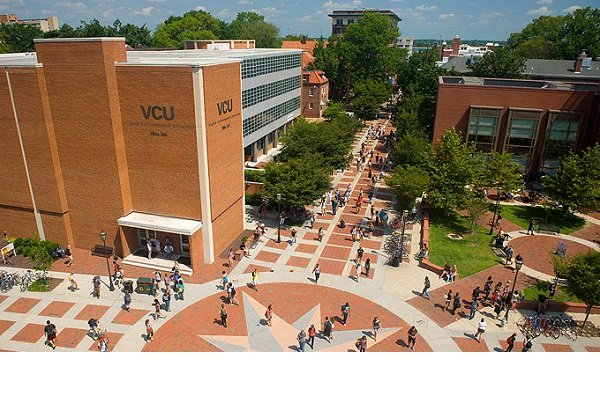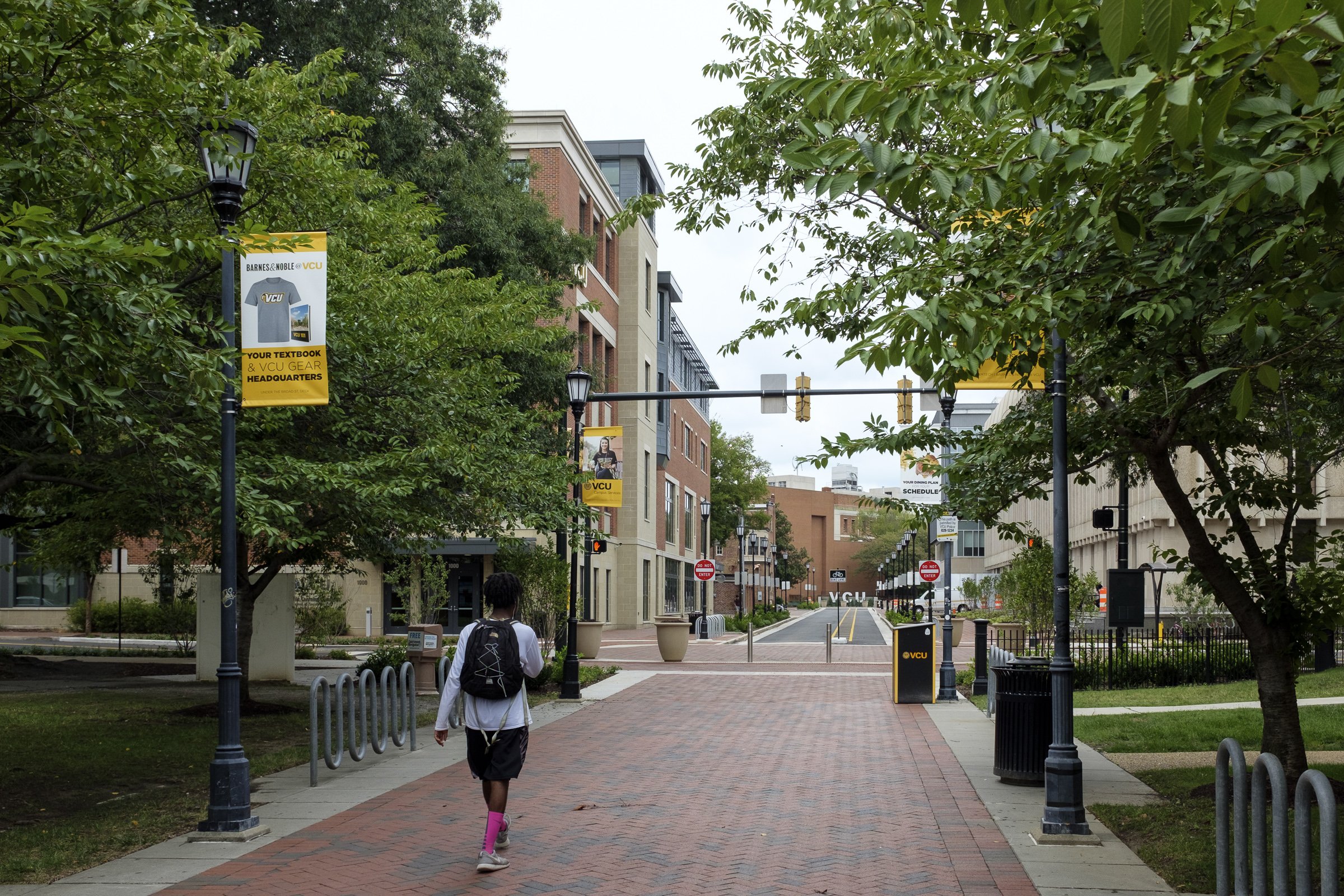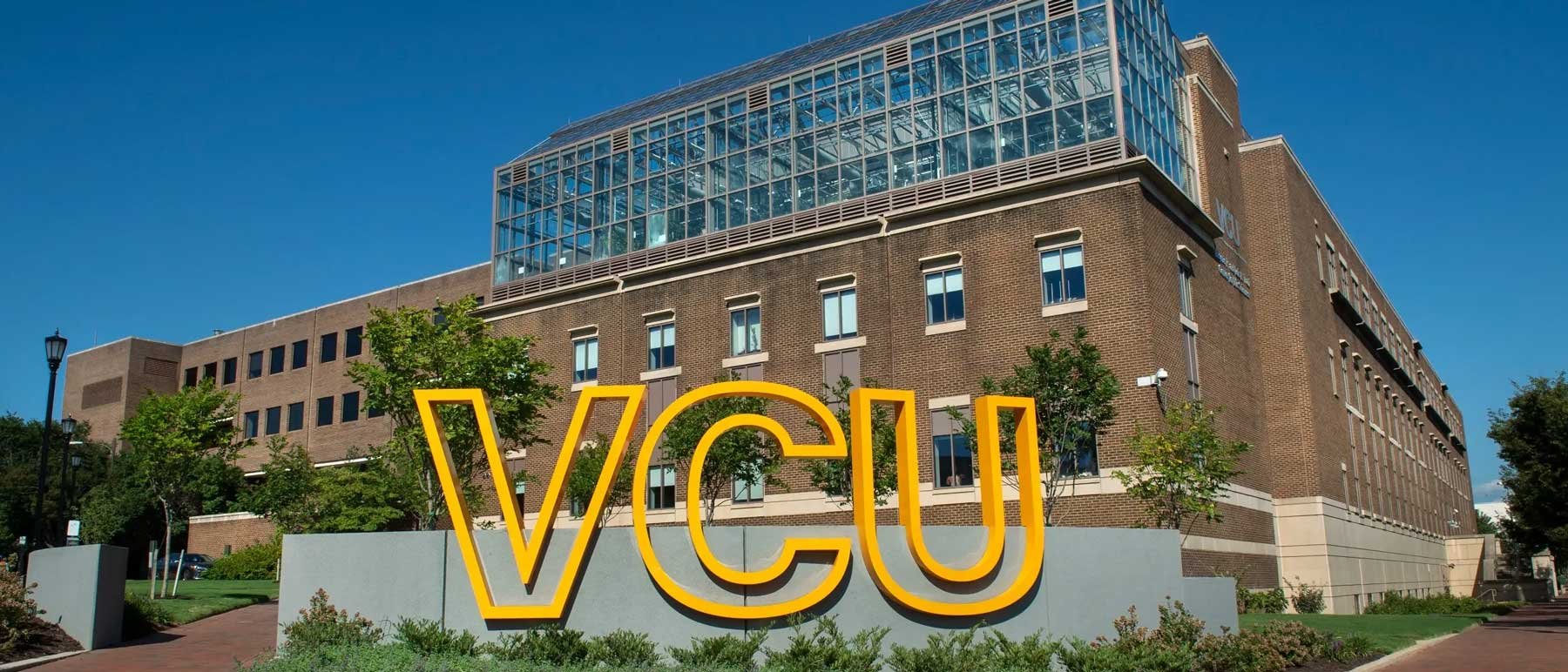
“At the heart of my teaching is creativity. I’ve seen so many great players lose their way when they stop being creative. Whether that’s writing your own music, studying an area of music that’s new to you, or learning to improvise and create spontaneously, creativity is vital to practice. Students in my studio are creative, expressive musicians. ”
Virginia Commonwealth University
Virginia Commonwealth University is located in downtown Richmond, the Virginia state capital with character! Richmond is historic, artsy, food-obsessed, diverse, and laid-back. With more than 40 museums (including VCUarts’s own ICA), a full-time symphony orchestra, ballet company, and independent galleries and performing arts spaces on every corner, Richmond is THE place for creative musicians and artists! And VCU Percussion is right in the middle of it.
The VCU Percussion Studio is capped at 16 majors in order to provide the best one-to-one teaching and performing experiences for our students. As an undergraduate-only department, you’ll study with our fantastic faculty and have access to our top performing ensembles. Our alumni continue to change the landscape of the music business through their performance, research, pedagogy, service to the profession, industry, and outreach. We hope you'll apply to join us!
VCU percussionists have gained admission to the most competitive graduate programs in the country, including The Eastman School of Music, Peabody Conservatory, The University of Texas at Austin, The University of Miami, Indiana University, and virtually every other percussion program of note in the US. Our students are attendees of the nation's leading summer music festivals, including the Aspen Music Festival and School and the Eastern Music Festival, and several of our students and alums were members of prominent DCI/WGI groups including The Madison Scouts, The Blue Devils, and the GMU Indoor Drum Line.
-
As a percussion major at VCU, you have several degree options to choose from that allow you to focus on your unique skills and career goals:
Bachelor’s Degree in Percussion Performance
The performance degree prepares students for a rich career as a professional performer. At VCU Percussion, our performance degree is expansive and diverse. In addition to the standard percussion repertoire, students learn a variety of musical traditions, from South Indian konnakol to West African drumming, Indonesian gamelan to Persian frame drumming. Drum set, concert percussion, and keyboard percussion are all studied in-depth and taught in tandem with global styles. Our percussion ensemble focuses on new and classic repertoire while highlighting percussion traditions from around the world.
Bachelor’s Degree in Music Education
The music education degree is for students who want to teach music in the public school system (K-12). You will develop your personal musicality while you gain practical classroom teaching experience through student-teaching internships and work in the field. Graduates qualify for the Commonwealth of Virginia’s Collegiate Professional Certificate to teach music in public schools. VCU boasts a 98% job-placement rate in music education! Graduates of the VCU music education program are licensed to teach in Virginia and many other states.
Bachelor’s of Arts in Music
In the Bachelor of Arts in Music program you can combine music with other areas of study. The degree includes 60 credits of music, 30 general education requirements and 30 credits of open electives. At the center of the program are courses in performance (lessons, masterclasses and ensembles); musicianship skills and analysis (theory, aural skills, keyboard skills and conducting); and history and repertoire.
Open electives allow for flexibility to tailor your degree toward your specific career goals. You can explore various topics within music, add one or more minors, or participate in certificate programs.
Popular pursuits of study for BA in Music majors include:
General business and entrepreneurship minors
Venture Creation certificate
Media Studies minor (journalism/advertising/public relations)
Psychology minor (if interested in music therapy)
Pre-health and pre-law advising tracks
Certificate in Advanced Media Production Technology (AMPT)
Students at VCU have the opportunity to take courses in and complete the AMPT certificate. The Certificate in Advanced Media Production Technology is designed to connect graduates with employment opportunities in the expansive field of digital media production. In this hands-on, project-based program, you will bring disciplined craftsmanship together with innovative technology to define and drive dialogue on the future of sound, sight and motion design. Students are encouraged to approach the development of digital media with a cross-disciplinary, entrepreneurial spirit and to apply information and communications technology in novel ways.
Teaching Philosophy
Although it involves a lot of time in the practice room, studying music isn’t really a solo effort. Teachers, students, listeners, audiences all play an important role. That’s why community is so important to me in my teaching. In the Indian tradition, students of the same teacher are known as guru-bhais - “teacher-students”. The idea is that we can all learn from each other, help each other, and support each other. Developing a students humanity through studying music is the most important thing I have to offer.
In terms of playing, I’m a firm believer in exploring as many areas of percussion as possible. It’s all music, and it all makes for better musicians. Additionally, contemporary performance opportunities demand versatility - not only on the range of instruments required for professional performance, but also in composition and improvisation. It can seem overwhelming at first, but the best part is that all of these areas can work together to make you a better percussionist and musician. At the heart of my teaching is creativity. I’ve seen so many great players lose their way when they stop being creative. Whether that’s writing your own music, studying an area of music that’s new to you, or learning to improvise and create spontaneously, creativity is vital to practice. Students in my studio are creative, expressive musicians.






